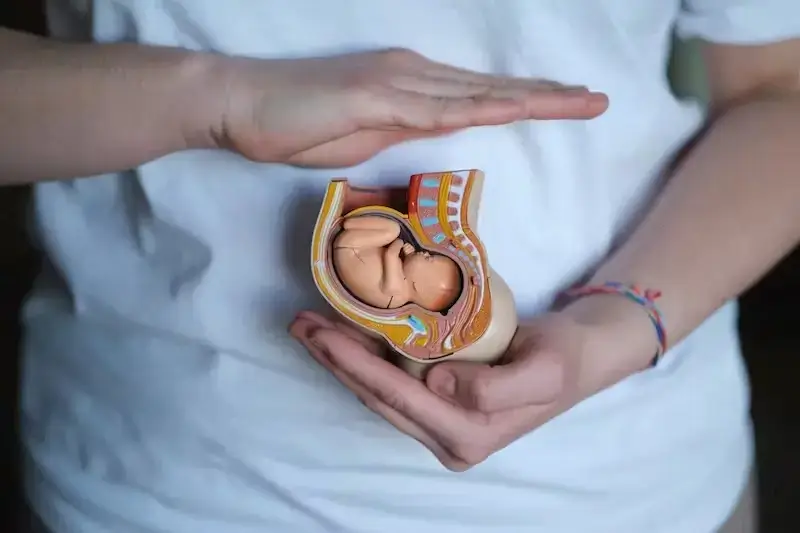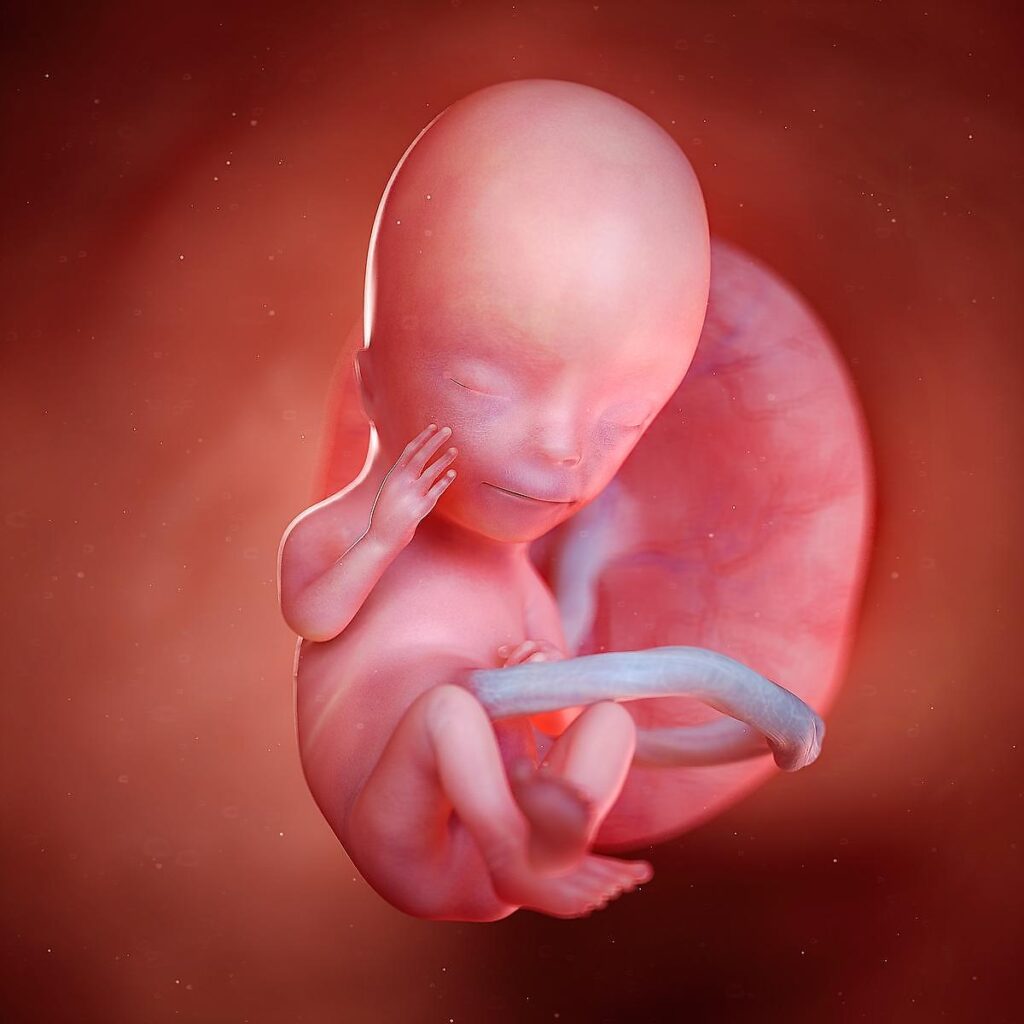
If you are 13 weeks pregnant, your baby has developed vocal cords and fingerprints and keeps growing. You’re about to start the second trimester of pregnancy, and your fatigue and morning sickness are probably subsiding.
Related: How Much Folic Acid Do I Need To Have?
13 Weeks Pregnant – Fetus

At 13 weeks pregnant, your baby keeps growing and developing, now measuring 2.9 inch/ 7.4 cm, the size of an apple and weighs about 0.9 of an ounce/ 25 gram. During week 13, your baby’s intestines are finally migrating back into the abdomen (until now, the intestines have been protruding into the umbilical cord, remember?) Inside the abdomen, liver and spleen are functioning, producing antibodies and removing old red blood cells. White blood cells are produced by the bone marrow, and your baby already has sweat glands, fingerprints and even vocal cords!
Baby at week 13 still has a very large head and the legs are short, but the tiny arms are quite proportional, and your baby can now put his thumb into his mouth. The sex organs are clearly visible (though you probably won’t be able to see your baby’s sex on the ultrasound scan yet), and if it’s a girl, she already has a lifetime supply of more than two million eggs in her tiny ovaries. If it’s a boy, his penis is forming and the testicles will be developed.
It’s not only the baby who is growing. The placenta is fully developed, and it is growing too, reaching one – two pounds at delivery, wow! The placenta supplies the baby with blood and oxygen, eliminates waste (such as carbon dioxide) from the baby’s body and fights potential infections. It also produces vital pregnancy hormones until the delivery.
Related: Why I Am Experiencing Belly Button Pain Or Itching Or Soreness?
13 Weeks Pregnant – Symptoms
You have reached the 13th week of pregnancy, and your nausea and fatigue are probably subsiding. The second trimester is right around the corner, and the risk of miscarriage is now much lower, while your sex drive may be much higher.
You may still be experiencing some unpleasant symptoms such as heartburn, gas, constipation or indigestion, and food cravings and/or aversions. You may also feel dizzy or faint. Bear in mind that dizziness and faintness are possible symptoms of ectopic pregnancy or miscarriage, so it’s best to call your doctor if you are experiencing those symptoms.
Other possible symptoms of ectopic pregnancy and miscarriage are leaking vaginal fluid or passing of tissue, bleeding, severe cramps or pelvic pain, low blood pressure, shoulder pain or rectal pressure.
Your breasts may still feel tender. What’s more, they may have already started producing colostrum (also called first milk). Colostrum is a form of milk extremely rich in protein and fat that will feed your baby for the first few days of his/her life, before “real” milk starts to flow. Many women will start producing colostrum only prior to delivery or right after it though, so don’t worry if your nipples are dry.
Blue veins may be visible on your breasts and/or abdomen, like some kind of a weird map. The veins are due to increased volume of blood during pregnancy. They will stay with you until delivery, and if you’re breastfeeding, only the veins on your breasts will remain visible – until you wean your baby.
Relaed: What Does Antenatal Classes Mean?
13 Weeks Pregnant – Questions
You may have noticed that your appetite is increasing. In the next months, you will eat more than you used to before pregnancy. It’s natural to eat more, after all, it’s not only you that you’re feeding, but it doesn’t mean you have to eat for two. Eat well, eat healthy, and avoid dieting without medical supervision! It’s important to gain the right amount of weight. You should gain about 300 extra calories a day during the second trimester, and about 400 extra calories a day during the third trimester.
1. Why is Weight Gain Important During Pregnancy?
If you gain too little or too much weight during pregnancy, it may harm your baby and you. If you gain too much, you are more likely to have a large or a premature baby or suffer from high blood pressure and diabetes. If you gain too little weight, you are more likely to have a baby with low birthweight (which is less than 5 pounds, 8 ounces).
2. How much Weight Should you Gain During Pregnancy?
The right weight gain depends on your pre-pregnant BMI (body mass index). This is a measure of body fat based on your height and weight. Here are the recommendations of the Institute of Medicine (IOM):
- Healthy weight (BMI: 18.5 to 24.9): You should gain between 25 to 35 pounds.
- Underweight (BMI: 18.5): You should gain 28 to 40 pounds.
- Overweight (BMI: 25 to 29.9): You should gain 15 to 25 pounds.
- Obese (BMI: 30 or higher): You should gain 11 to 20 pounds.
- Weight gain recommendations for a pregnancy with twins:
- Healthy weight: You should gain between 37 to 54 pounds.
- Overweight: You should gain 31 to 50 pounds.
- Obese: You should gain 25 to 42 pounds.
Related: The Top 6 Pregnancy Questions I Hear From First-Time Moms
Related: 14 Weeks Pregnant – Fetus


